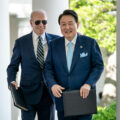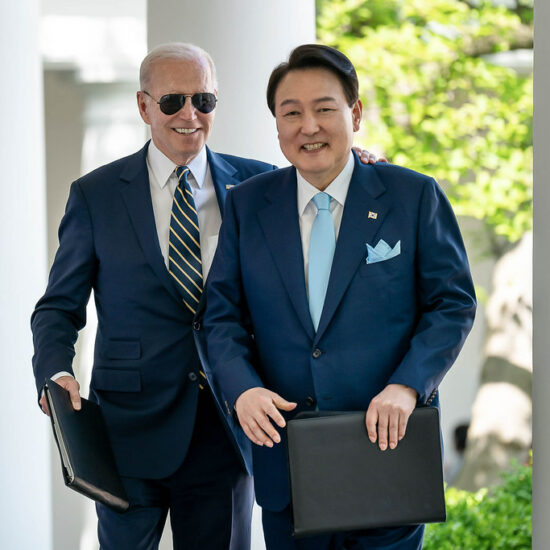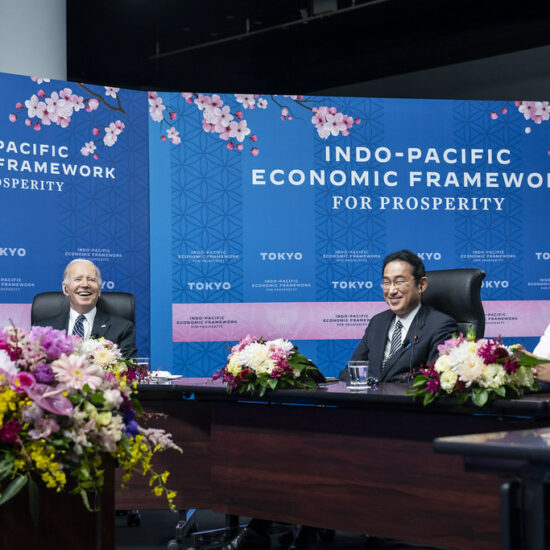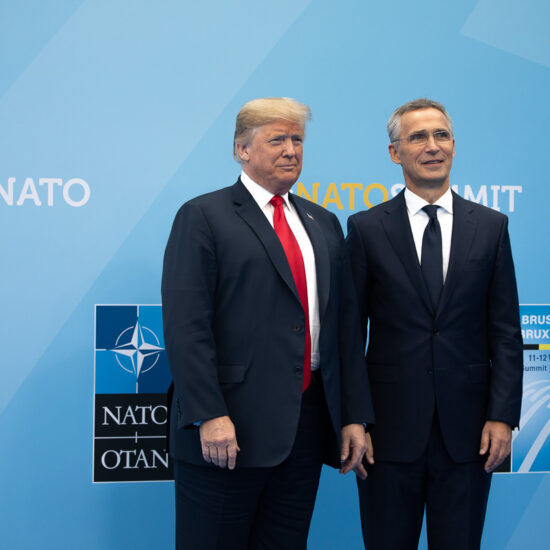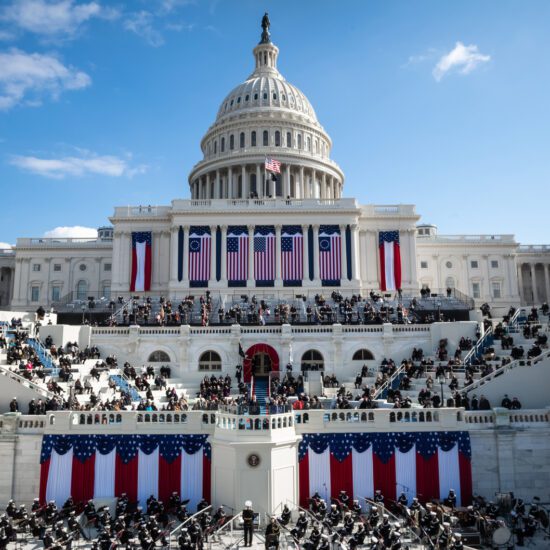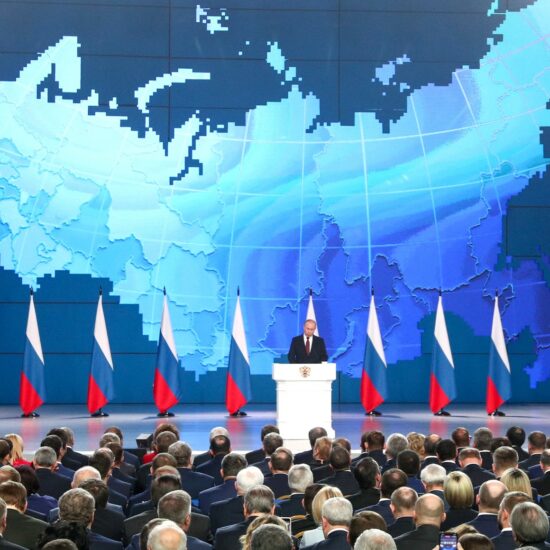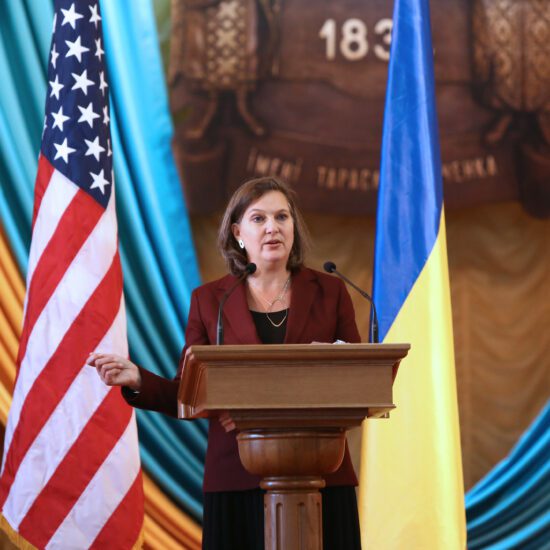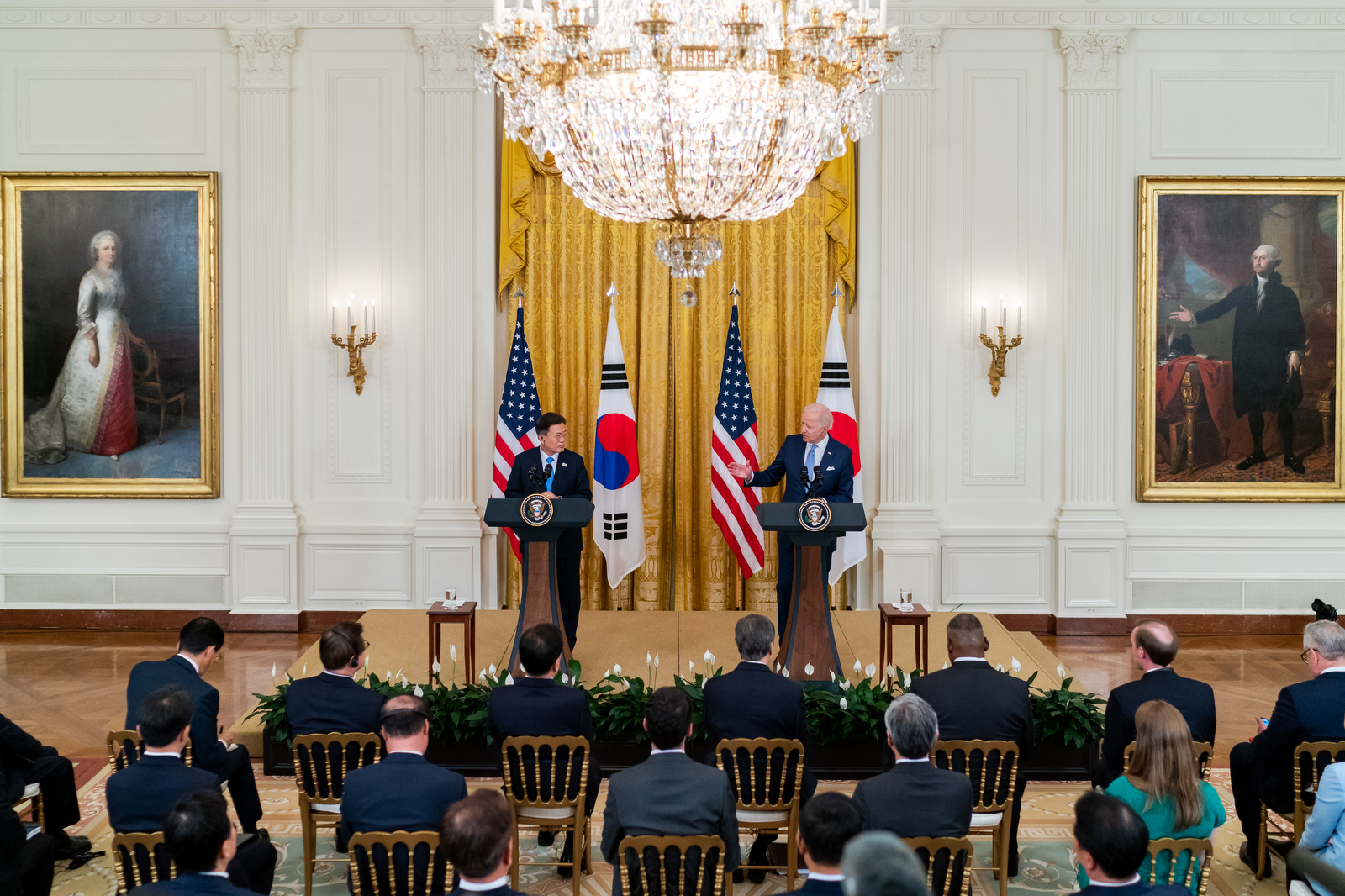
Image credit: The White House
While visiting Australia in mid-December, South Korean President Moon Jae-in announced that North Korea, China, South Korea, and the United States have agreed on an end-of-war declaration at the “fundamental and principle levels”. Since 1953, when an armistice ended large-scale combat on the Korean Peninsula, the parties to that war have not signed a peace treaty. Instead, they have prepared for war as though it could or should resume at a moment’s notice.
Moon first proposed the ‘end-of-war declaration’ in a speech before the UN in 2019. He renewed that call before that same body this past September, inviting diplomats from the U.S., South Korea, and North Korea to meet, negotiate, and sign a declaration. He also called for including China in a four-party declaration. The ‘end-of-war’ notion is formulated as an alternative to a formal peace treaty that remains politically out of reach, especially after the failure of the Hanoi Summit in 2019. As such, President Moon hoped that 3- or 4-party talks might lead to a renewal of negotiations regarding the broader issues of peninsular peace.
In his Canberra remarks, Moon pointed out that “we are not able to sit down for a negotiation on declarations,” because of Pyongyang’s insistence that the U.S. and South Korea “end hostile policies” before any talks could proceed. As the Deputy Director of the Publicity and Information Department of North Korea’s ruling Workers’ Party Kim Yo-jong stated in September, the first step is to “ensure mutual respect toward one another and abandon prejudiced views, harshly hostile policies and unfair double standards toward the other side.” Of course, this conditionality lacks specificity. Yet, judging from previous North Korean negotiating positions, Pyongyang is likely signaling that moving to meaningful negotiations will require the U.S. to provide offers of sanctions relief and reduce its military presence and joint exercises in the South.
The United States, for its part, still insists on the unilateral nuclear disarmament of North Korea. Numerous issues of mutual interest to Pyongyang and Seoul are considered secondary and contingent on nuclear disarmament. Given that North Korea is now a (minor) nuclear power that considers nuclear weaponry essential to its strategic posture, Washington’s position is equivalent to a refusal to negotiate from Pyongyang’s perspective.
Until quite recently, the Biden administration’s behavior suggested it had adopted the Obama administration’s notion of “strategic patience,” a stance that amounts to taking no actual diplomatic initiatives. Recently, this has changed—with the U.S. now signaling that it is ready to talk, take a “step-by-step” approach, and honor the framework agreed upon in the 2018 Singapore Joint Statement made by Kim and Trump.
A step-by-step approach requires give and take. Moreover, it implies that the U.S. might ultimately have to settle for some tempering of the North’s nuclear arsenal rather than the complete, verifiable, and irreversible disarmament (CVID) it was originally seeking. Not that Washington is ready to acknowledge this publicly. In fact, the recent G7 meeting statement reasserted the CVID standard.
Washington might argue that its affirmation of CVID is justified given the Singapore Statement includes a provision which declares: “Reaffirming the April 27, 2018 Panmunjom Declaration, the DPRK commits to work toward complete denuclearization of the Korean Peninsula.” Nevertheless, the formulation “denuclearization of the Korean Peninsula” is a subject of contention, because North Korea and the United States interpret its meaning differently.
By reaffirming the Singapore Joint Statement as a basis for negotiations, however, the U.S. hints that it is prepared to negotiate with the North on the precise meaning of “Peninsula Denuclearization”. For instance, might the U.S. eventually agree to stop flying dual-capable (nuclear and conventional) bombers over the peninsula?
Meanwhile, the U.S. Treasury Department recently announced new ‘human rights’ sanctions, blacklisting North Korea’s Central Public Prosecutors Office, a former Minister of Social Security, and the new Minister of People’s Armed Forces. Whatever value these sanctions might have in their particulars, they certainly send a mixed message to North Korea about prioritizing peace and disarmament negotiations.
Things change, however, and the situation in Korea is not stable. For several years, both North and South Korea have been in a short-to-medium range missile arms race, developing and testing missiles carrying greater payloads over longer distances. As Sangsoo Lee of the Stockholm Korea Center observes: “What we are witnessing today on the Korean Peninsula is the same kind of action-reaction dynamic that developed between the United States and the Soviet Union during the Cold War—a destabilizing and expensive arms race.” This rings true, as despite Moon’s desires for peninsular peace, he has not as of yet demonstrated the political will to reign in ROK’s military establishment.
In 2018 Pyongyang decided, at the urging of Russia and China, to induce negotiations with the U.S. by initiating a moratorium on testing new ICBMs and nuclear warheads. However, as time goes by, Chairman Kim faces increasing pressure from his military to end this moratorium. Pressure is unlikely to subside, for Military planners in the North are aware that the U.S. has been preparing its Air Force and Navy for conventional preemptive operations to prevent the successful wartime use of North Korean nuclear weapons. Pyongyang also understands that the deterrent value of its partially-developed nuclear arsenal diminishes over time absent ongoing improvements, which require periodic testing. Therefore, if serious negotiations do not begin soon, one could expect the DPRK to end its testing restraint.
While many in Washington are content with a strategy of waiting patiently for sanctions to force Pyongyang’s capitulation, this approach overlooks how existentially critical nuclear weaponry has become in North Korea’s strategic calculus. Without an adequate national security alternative, Pyongyang will most likely choose to suffer indefinitely under the economic pain of sanctions, however severe.
President Moon has consistently sought a path toward peace with North Korea. Achievements in this regard include facilitating several intra-Korean summits and the three meetings between Trump and Kim. Economic opening to North Korea has been at the core of Moon’s program, but Washington’s sanctions regime has blocked most initiatives. The end-of-war declaration, agreed to “in principle” by four major stakeholder nations, may well be the last significant peace initiative of his term. Yet, even if it goes no further than the symbolic agreement announced in Canberra, Moon, as a practical politician, likely consoles himself with a secondary objective of burnishing his political party’s reputation for pursuing peace during the run-up to the next election.
The impasse in Korea raises profound questions about the U.S.-South Korea alliance. What is an alliance’s value for peace and security if a faraway great power effectively vetoes peace initiatives by a middle power dealing with a potential war situation in its immediate neighborhood? Of course, some will argue this to be simply the latest example of Thucydides’ Melian dilemma: “The strong do what they can, and the weak suffer what they must.” But this simple formulation never captures the full complexity or mutability of the real world. It did not do so for the Athenians, nor the Melians, and neither does it do for us today.
Alliances cannot and do not last forever. To endure from one era to another, they must adapt and change. If Washington returns to old habits of leveraging its hegemonic will to control affairs on the Korean Peninsula, it may reap the unintended consequence of hastening the end of the alliance. After all, South Korea is much stronger economically and militarily than it was a few decades ago. It has earned substantial agency in its Northeast Asian geostrategic maneuvers, and it demands certain strategic autonomy independent from Washington. The U.S. would be wise to recognize this and accommodate Seoul. A relationship of partnership will be more productive than the archaic patron-client one that actively shuns South Korean interest. And such strategic recalibration would come with the added benefit of helping end America’s longest war.
Charles Knight is a Senior Fellow at the Institute for Peace & Diplomacy and a principal researcher for the Project on Defense Alternatives (PDA). Knight is an Emeritus Senior Fellow at the Center for International Policy, Washington, DC.

